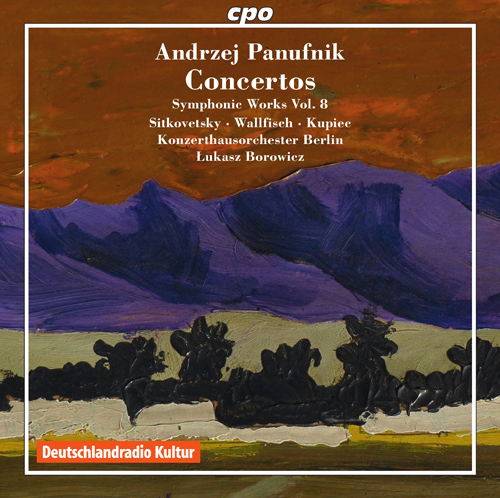
All tracks & Credits
15.2.22
ANDRZEJ PANUFNIK : Nocturne - Symphonic Works, Vol. 1 ( Łukasz Borowicz / Polish Radio Symphony Orchestra ) (2010) FLAC (tracks+.cue), lossless
ANDRZEJ PANUFNIK : Speranza - Symphonic Works, Vol. 6 (Łukasz Borowicz, Konzerthausorchester Berlin) (2013) FLAC (tracks+.cue), lossless

12.1.22
ZELENSKI : Concerto In E Flat Major, Op. 60 ♦ ZARZYCKI : Concerto In A Flat Major, Op. 17 • Grande Polonaise, Op. 7 (Jonathan Plowright · BBC Scottish Symphony Orchestra · Łukasz Borowicz) (2013) Serie The Romantic Piano Concerto – 59 | FLAC (image+.cue), lossless

Tracklist :
Piano Concerto In E Flat Major Op 60 (34:00)
Composed By – Władysław Żeleński
Piano Concerto In A Flat Major Op 17 (17:21)
Composed By – Aleksander Zarzycki
Grande Polonaise In E Flat Major Op 7 4:32
Composed By – Aleksander Zarzycki
Credits :
Leader – Kanata Ito
Orchestra – BBC Scottish Symphony Orchestra
Piano – Jonathan Plowright
Conductor – Łukasz Borowicz
11.1.22
Różycki : Piano Concerto No 1, Op 43 • Piano Concerto No 2 • Ballade, Op 18 (Jonathan Plowright · BBC Scottish Symphony Orchestra · Łukasz Borowicz) (2016) Serie The Romantic Piano Concerto – 67 | FLAC (tracks+.cue), lossless

Tracklist :
Ballade In G Major Op 18 10:35
Composed By – Ludomir Różycki
Piano Concerto No 1 In G Minor Op 43 (31:43)
Composed By – Ludomir Różycki
Piano Concerto No 2 (20:52)
Composed By – Ludomir Różycki
Credits :
Conductor – Łukasz Borowicz
Leader – Laura Samuel
Orchestra – BBC Scottish Symphony Orchestra
Piano – Jonathan Plowright
10.1.22
GABLENZ : Piano Concerto In D Flat, Op 25 • PADEREWSKI : Polish Fantasy, Op 19 (Jonathan Plowright | Łukasz Borowicz | BBC Scottish Symphony Orchestra) (2021) Serie The Romantic Piano Concerto – 83 | FLAC (tracks), lossless

Tracklist :
Piano Concerto in D flat major Op. 25
Jerzy Gablenz
Fantaisie polonaise sur des thèmes originaux Op. 19
Ignace Jan Paderewski
Credits :
Jonathan Plowright - Piano
BBC Scottish Symphony Orchestra
Lukasz Borowicz - Conductor
+ last month
FRANKIE "Half-Pint" JAXON — Complete Recorded Works In Chronological Order Volume 3 · 1937-1940 (1994) FLAC (tracks+.cue), lossless
After cutting records with the Harlem Hamfats in Chicago during the years 1937 and 1938, Frankie "Half Pint" Jaxon made his final ...






















.jpg)
.jpg)



